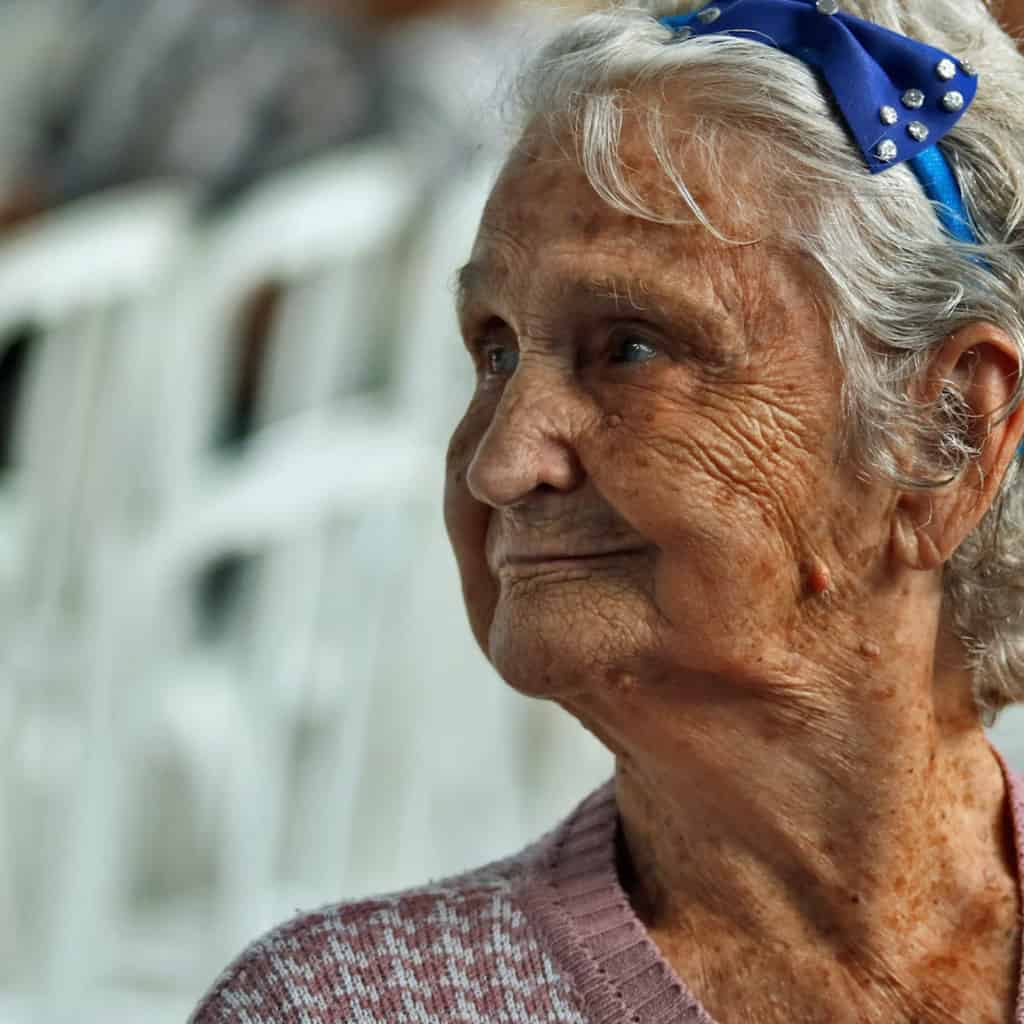Caring for a grandparent is challenging enough by itself. But when you add dementia to the mix, it becomes even more difficult.
With dementia, change is the only constant. The disease almost always develops from mild impairment to disability that prevents the affected person from functioning.
Early on in the disease, dementia patients can still live independently. They can look after themselves at home, take the car out, and even go to work if they haven’t yet retired. Symptoms include things like difficulty with numbers, losing the ability to plan events and difficulty making grocery lists of items needed for the week’s cooking.
When dementia becomes more severe, you’ll notice an increase in memory loss and confusion. People with Alzheimer’s can struggle to get dressed or pay the bills. And they may start occasionally cursing, kicking or screaming.
In the later stages of the disease, patients can experience trouble swallowing and eating. You may also notice significant alterations in their personalities as a carer for disabled parents with Alzheimer’s, and they often require attention 24/7.
3 Ways to take care of a parent with dementia
If you’re looking after an elderly relative at home with dementia, here are some of the things that you should do:
Make Your Home Safe
Just as you might make your home safe for the arrival of a new child, you also need to make it safe for any parents with dementia living with you. That means hiding away dangerous appliances, such as toasters, and putting down non-slip mats in the bathroom. You’ll also want to make sure that all your communal areas are well lit and that your grandparents can see where they are going at all times.
Make sure that you have fire extinguishers and first aid kits on hand, just in case there’s a problem you need to deal with immediately.
Find Out What Dementia Entails
The next step is to do your research and learn more about what dementia entails. It can be helpful to go online and look for dementia care tips from facilities that primarily deal with those suffering from the illness. It can also be beneficial to seek out information put online by others in a similar case to yourself.
In many cases, outcomes are non-intuitive. For instance, people with dementia may lose the ability to swallow their food. In these circumstances, it doesn’t make much sense to tell them to “eat up” – they can’t simply do that and might require some patience and support.
You also need to be aware that memory loss is only part of the picture. Often, there are other symptoms as well, such as an increased propensity for fear and rage.
Find Resources That Will Help You Deal With Caregiver Stress
Naturally, looking after a loved one with dementia can be a challenging experience. As such, you’ll also need to make sure that you look after yourself. During your care, you may be grieving as you watch your loved one decline.
Therefore, it’s critical to schedule some time for yourself. It’s also a good idea to take regular breaks so that you don’t experience caregiver burnout. Alternatively, you may consider placing your loved one in a memory care facility for seniors, where they can actively engage in communication. These facilities provide specialized care that fosters social interaction, allowing individuals to maintain connections, express their needs and emotions, and preserve a sense of identity and self-worth. communicating with dementia in these environments not only supports their emotional health but also helps enhance their quality of life by fostering meaningful connections and reducing feelings of isolation.
You should also avoid trying to do everything yourself. Get support from friends, family, and outside resources. If you need to speak with a care advisor for more information on what you should be doing, there are many helplines available.


